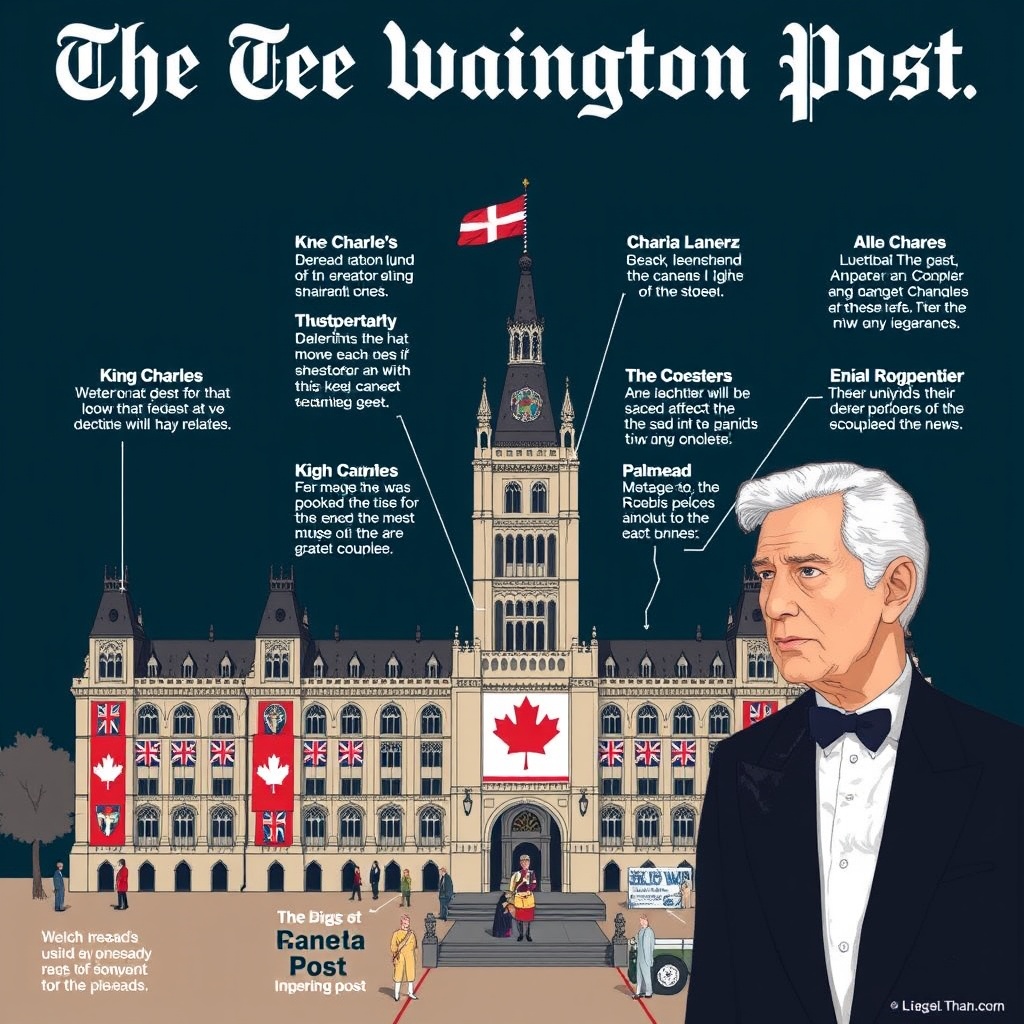Introduction
The relationship between the United Kingdom and Canada, two nations with a long history of cultural and linguistic ties, is about to be put under the spotlight as King Charles prepares to open Canada's Parliament. This significant event is taking place amidst a backdrop of controversy, sparked by former US President Donald Trump's comments about potentially making Canada the 51st state of the United States. Trump's remarks have ignited a diplomatic firestorm, drawing King Charles into a complex web of international relations. In this article, we will explore the implications of Trump's comments, the historical context of the UK-Canada relationship, and the potential consequences of King Charles's visit to Canada.
Historical Context: The UK-Canada Relationship
The United Kingdom and Canada have a rich and complex history, dating back to the 18th century when Canada was a British colony. Over time, Canada gradually gained independence, becoming a self-governing dominion of the British Empire in 1867. Today, Canada is a sovereign nation, but it still maintains a constitutional monarchy, with King Charles serving as the head of state. The UK-Canada relationship is built on a foundation of shared values, language, and culture, with both nations enjoying a strong economic and strategic partnership.
The relationship between the two nations has been reinforced by numerous visits and engagements between British monarchs and Canadian leaders. King Charles's visit to Canada is the latest in a long line of royal tours, which have helped to strengthen the bond between the two countries. However, Trump's comments about annexing Canada have introduced a new dynamic into the relationship, creating tension and uncertainty.
The Impact of Trump's Comments
Trump's suggestion that Canada could become the 51st state of the United States has been met with widespread criticism and ridicule. The idea of annexing Canada is not only impractical but also deeply unpopular among Canadians, who value their independence and sovereignty. The comments have also been rejected by Canadian leaders, who have emphasized the country's commitment to its own unique identity and values.
Despite the controversy surrounding Trump's comments, they have sparked a wider debate about the future of the UK-Canada relationship. Some have argued that the comments reflect a deeper desire among some Americans to expand US influence and territory, potentially at the expense of Canada's sovereignty. Others have suggested that the comments are simply a distraction, designed to divert attention away from more pressing issues.
King Charles's Visit to Canada
King Charles's visit to Canada is taking place against this backdrop of controversy and uncertainty. The monarch's trip is seen as an opportunity to reinforce the UK-Canada relationship and to emphasize the importance of Canadian sovereignty. The visit will include a range of engagements, including meetings with Canadian leaders, visits to cultural institutions, and ceremonies to mark the monarch's role as head of state.
The visit is also seen as a chance for King Charles to promote British interests and values in Canada. The monarch has been a vocal advocate for issues such as climate change and social justice, and his visit is expected to focus on these themes. However, the trip is also likely to be overshadowed by the controversy surrounding Trump's comments, with the monarch facing questions about the UK's position on the issue.
Case Studies: The Implications of Annexation
To understand the implications of Trump's comments, it is useful to consider case studies of other countries that have been annexed or occupied by larger powers. One example is the case of Puerto Rico, which has been a US territory since 1898. Despite having a degree of autonomy, Puerto Rico has struggled to achieve full independence, with many residents feeling that they are treated as second-class citizens.
Another example is the case of Scotland, which has been part of the United Kingdom since the 18th century. The Scottish independence movement has been driven in part by a desire for self-determination and a sense of distinct national identity. The movement has highlighted the complexities of annexation and the importance of respecting the sovereignty of smaller nations.
Statistics: The Economic Implications of Annexation
The economic implications of annexation are also significant. A study by the Canadian Centre for Policy Alternatives found that annexation could result in significant economic costs for Canada, including the loss of sovereignty over natural resources and the potential for trade disruptions. The study estimated that the costs of annexation could be as high as $100 billion per year.
In contrast, a study by the Cato Institute found that annexation could result in significant economic benefits for the United States, including increased access to Canadian natural resources and a larger market for US goods. However, the study also noted that the benefits of annexation would depend on a range of factors, including the terms of the annexation and the level of cooperation between the two countries.
Conclusion
King Charles's visit to Canada is taking place at a time of great uncertainty and controversy. Trump's comments about annexing Canada have sparked a wider debate about the future of the UK-Canada relationship and the importance of Canadian sovereignty. The visit is an opportunity for the monarch to reinforce the bond between the two nations and to emphasize the importance of respecting the sovereignty of smaller countries.
As the world watches King Charles's visit to Canada, it is clear that the implications of Trump's comments will be far-reaching. The debate about annexation and sovereignty is likely to continue, with significant implications for the UK-Canada relationship and the future of international relations. Ultimately, the visit is a reminder of the importance of diplomacy and cooperation in maintaining strong and healthy relationships between nations. By working together and respecting the sovereignty of all countries, we can build a more peaceful and prosperous world for all.


Leave a comment